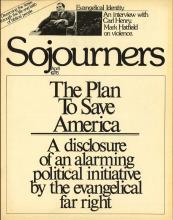In last month’s column I expressed a conviction that fundamental changes in the attitude of church leaders will be a necessary first step toward restoring to the church its biblical self-image; and the claim was put forward that poverty, though an evil by any biblical standard of values, must at times be endured (even pursued!) for the gospel’s sake. Our present age is one of those times; and what a deluge of defenses emerges from our corporate conscience when we begin dealing seriously with such an idea! In fact, a very great brouhaha occurs whenever ordinary Christians discuss poverty in relation to the gospel -- I suppose because opinions are divergent and old and run deep and strong. However, I think today’s Christian credential in an egalitarian and one-world-minded society is tenuous enough to leave us exposed as fraudulent if we continue to equivocate.
The big question is, by what criteria, in the spirit of the New Testament meaning of the term the poor, can we assess whether we are among those who are the happy and blessed in that condition?
A great deal of homiletical pap has been served up in order to season Luke’s 'the poor' for the popular palate; and much rejoicing has been done among the affluent because Matthew supposedly removed the subject from the realm of economics by adding the words in spirit. But I find it helpful to speculate about who the poor Jews of the first century might have been -- it helps me keep a clearer perspective.
Read the Full Article

